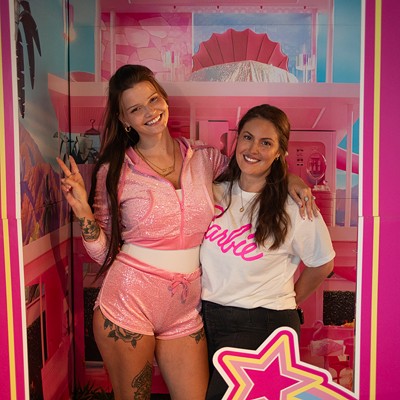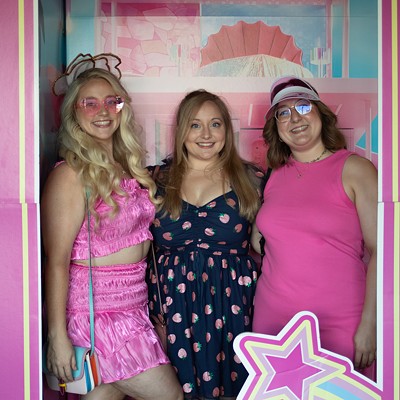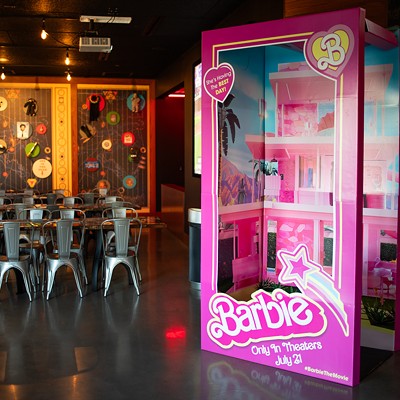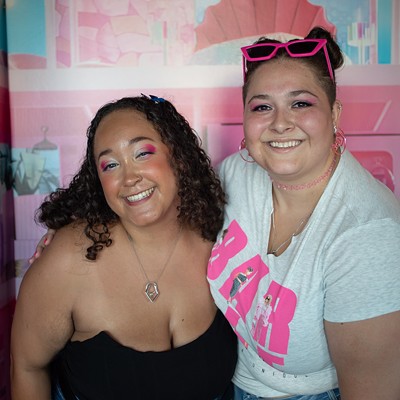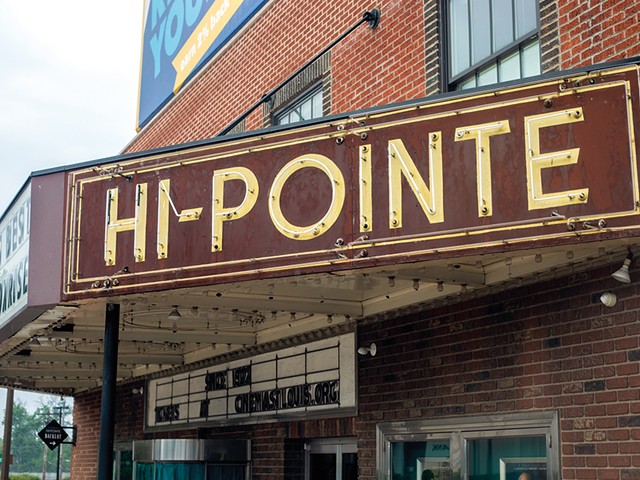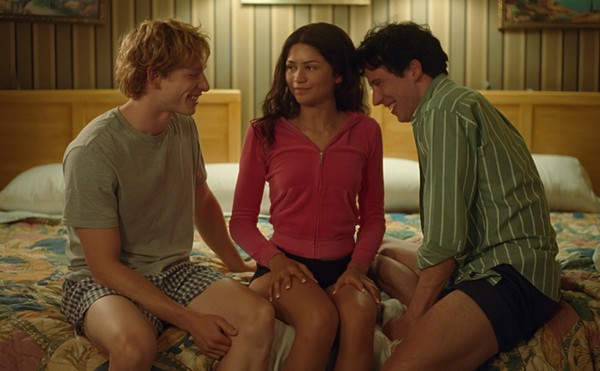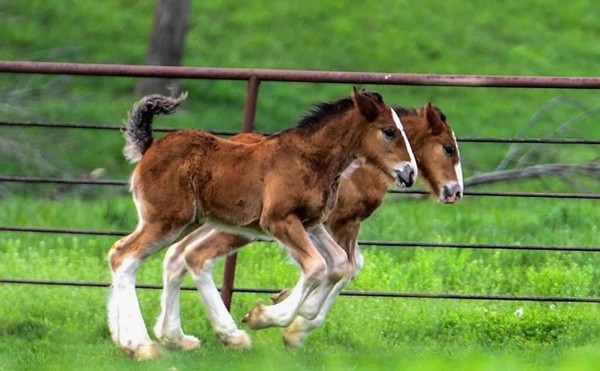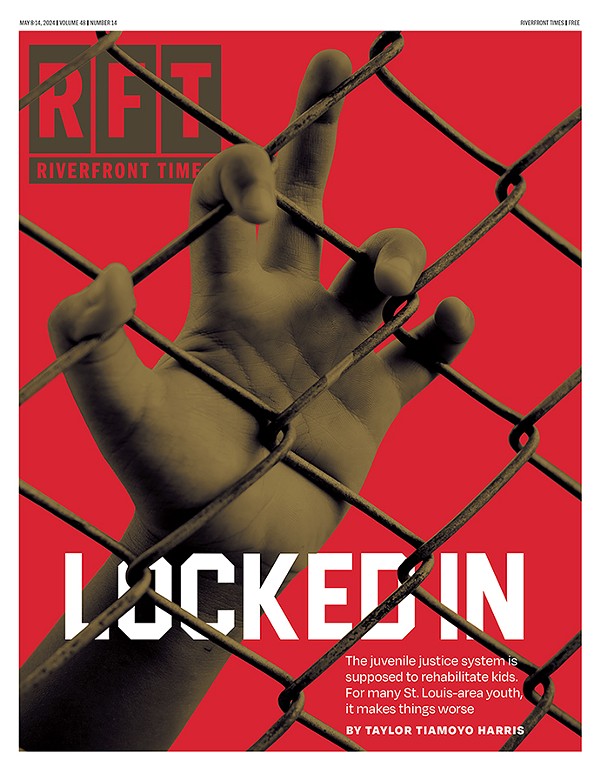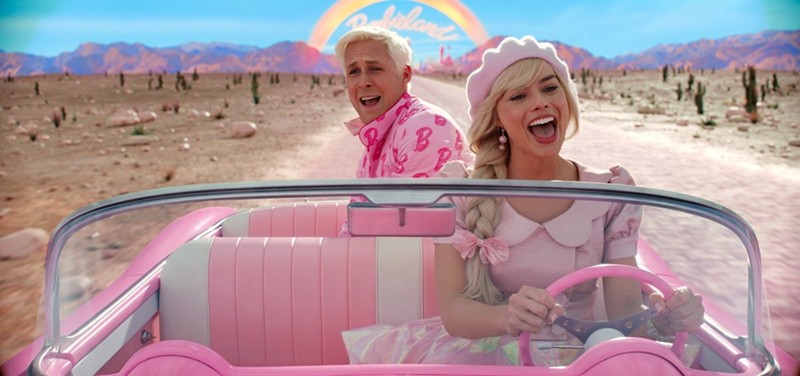
COURTESY WARNER BROS
Barbie (Margot Robbie) and Ken (Ryan Gosling) are prepared to journey into the heart of darkness — a.k.a. the real world.
We are living in difficult times. Girls’ self-harm and suicide rates are spiraling; women are more burned out than ever taking the second shift. Boys are slipping behind in school and struggling to graduate; men are more and more often the victims of deaths of despair.
Could Barbie be to blame?
It’s tempting to trace the troubles of both genders to the iconic blonde doll. After all, from the beginning, she has perpetuated impossible beauty standards, relentless consumption and the unrealistic expectation that female-identifying people never stop teeth-smiling. With her impressive résumé (astronaut, doctor, teacher, president), she’s also encouraged the “girls can be everything” mindset that backfires when girls and women realize, “Oh, we actually can’t. Or, at least most of us can’t.” Whether regressive pin-up or a blown-out girl boss, Barbie can’t be the perfect role model. Gender ideals, past and present, have always been too fraught.
The excessively hyped Barbie movie knows all this, but also knows how much fun it is to both embrace these roles and mock them. Directed by Greta Gerwig and co-written with Noah Baumbach — best known for directing off-beat indie hits like Lady Bird and The Squid and the Whale — Barbie is not a movie for people who seek an evening of simple fuchsia escapism. Nor is it a movie for kids (though, at the matinee I attended, little girls in sparkling crowns howled with laughter from the front row). It is a movie for those who can earnestly revel in the unabashedly femme — pastels, lipstick, sparkles! — but are also open to a startlingly sober exploration of gender inequality and late-capitalist dread.
“Thanks to Barbie, all problems of feminism have been solved,” says the voice-of-god narrator (Helen Mirren) during an intro aerial shot of “Barbieland,” a relentlessly peppy matriarchy of plastic houses near a sun-lit beach. From here, our heroine — dubbed “Stereotypical Barbie” (Margot Robbie), as she resembles the model invented by Mattel CEO Ruth Handler in 1959 — sets off on yet another perfect day in her perfect world.
All the women around her are also “Barbie,” and represent actual dolls sold in real life (with certain welcome exceptions; one Barbie is plus-size and another is played by trans actress Hari Nef). The Kens in Barbieland — also a range of races, though less so body type — are mostly a diversion. They hold no positions of power, and are mostly around to lift Stereotypical Barbie (henceforward called just Barbie) in the air at one of her nightly dance parties. “Stereotypical Ken” (Ryan Gosling) courts Barbie’s attention to his constant disappointment; Barbie doesn’t want to kiss him and prefers a “girl’s night” to a roll in the (plastic) hay.
Things go awry when Barbie suddenly has “thoughts of death” and her upper thighs display a faint ripple of cellulite. Something is wrong — very wrong! Consulting “Weird Barbie” (Kate McKinnon), Barbie is advised to take a portal to the real world and confront the girl who’s playing with her — the girl whose malaise and indignation are responsible for the doll’s dysfunction. Much of the humor in the “real world” comes from Barbie’s befuddlement that women don’t run it and Ken’s wild glee that, in fact, men do.
Crucially, Barbie is not a film that tries to convince its audience that the patriarchy is real and should be upended. It is a film that assumes we already know it’s real and can laugh (and cry) at all the ways it is absurd and hurts people of all gender identities. In the film’s second half, a mother and daughter from the real world (America Ferrera and Ariana Greenblatt) help Barbie in her dual mission to 1) restore order in Barbieland, which has fallen apart in her absence, and 2) figure out her individual purpose once she realizes her blonde, perky cluelessness is terribly retrograde.
Robbie’s knack for physical comedy (and grace; see her lead turn in I, Tonya) is on full display, as is her impressive range of emotional expression. I can’t think of any other actor today who could both make you believe she is a plastic doll and gradually become so real and vulnerable that her former lack of substance becomes all the more unsettling. Robbie’s not going to get an Oscar nomination for this film, but she should. Gerwig and Baumbach might very well get a nom for Best Screenplay, and they will deserve it. This is a film when, just as you ask, “What in the name of plastic stilettos is going on here?” a squad of suited Mattel execs (led by Will Ferrell) storm Venice Beach in neon rollerblades or a West Side Story-inspired dance battle erupts between dueling Kens. This is a film that delights in the absurdity of Barbie to expose the absurdity of gender in the world we live in.
“How did this movie get made?” my partner asked me around two-thirds through. Good question. Gerwig and Baumbach fought to keep artistic freedom with the script, even when Mattel and Warner Bros. initially insisted on approval, and so what could come across as yet another nostalgic Hollywood cash-grab is instead a send-up of both consumerism and conservative gender roles. Barbie ultimately asks what it means to be mortal, what it means to be alive — and it takes these questions seriously.
“If you’re celebrating all that is, you’re also celebrating everything that will come to an end,” Gerwig said at the New York premiere for Baumbach’s White Noise, in which she starred. For the half-hour prior, I watched as my press colleagues posed question after question to her romantic and creative partner, until she artfully co-opted a query about the film’s buoyant take on death. The audience cheered — as did I.
No one will be surprised that Barbie will make a lot of money. What is shocking is that Gerwig didn’t sell her soul to make it. I’ll take that as some small progress.
Barbie is directed by Greta Gerwig and written by Greta Gerwig and Noah Baumbach. It stars Margot Robbie, Issa Rae, Ryan Gosling, Kate McKinnon and Will Ferrell, and is now showing in area theaters.
Subscribe to Riverfront Times newsletters.
Follow us: Apple News | Google News | NewsBreak | Reddit | Instagram | Facebook | Twitter | Or sign up for our RSS Feed


